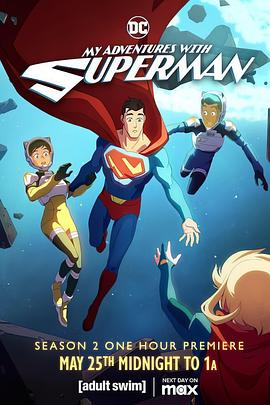导演:斯坦尼斯拉夫·罗泽维格
主演:Andrzej Banaszewski Beata Barszczewska 马里乌什·德莫霍夫斯基
状态:HD
剧情: In 1961, Stanislaw Rozewicz created the novella film "Birth Certificate" in cooperation with his brother, Taduesz Rozewicz as screenwriter. Such brother tandems are rare in the history of film but aside from family ties, Stanislaw (born in 1924) and Taduesz (born in 1921) were mutually bound by their love for the cinema. They were born and grew up in Radomsk, a small town which had "its madmen and its saints" and most importanly, the "Kinema" cinema, as Stanislaw recalls: for him cinema is "heaven, the whole world, enchantment". Tadeusz says he considers cinema both a charming market stall and a mysterious temple. "All this savage land has always attracted and fascinated me," he says. "I am devoured by cinema and I devour cinema; I'm a cinema eater." But Taduesz Rozewicz, an eminent writer, admits this unique form of cooperation was a problem to him: "It is the presence of the other person not only in the process of writing, but at its very core, which is inserperable for me from absolute solitude." Some scenes the brothers wrote together; others were created by the writer himself, following discussions with the director. But from the perspective of time, it is "Birth Certificate", rather than "Echo" or "The Wicked Gate", that Taduesz describes as his most intimate film. This is understandable. The tradgey from September 1939 in Poland was for the Rozewicz brothers their personal "birth certificate". When working on the film, the director said "This time it is all about shaking off, getting rid of the psychological burden which the war was for all of us. ... Cooperation with my brother was in this case easier, as we share many war memories. We wanted to show to adult viewers a picture of war as seen by a child. ... In reality, it is the adults who created the real world of massacres. Children beheld the horrors coming back to life, exhumed from underneath the ground, overwhelming the earth." The principle of composition of "Birth Certificate" is not obvious. When watching a novella film, we tend to think in terms of traditional theatre. We expect that a miniature story will finish with a sharp point; the three film novellas in Rozewicz's work lack this feature. We do not know what will be happen to the boy making his alone through the forest towards the end of "On the Road". We do not know whether in "Letter from the Camp", the help offered by the small heroes to a Soviet prisoner will rescue him from the unknown fate of his compatriots. The fate of the Jewish girl from "Drop of Blood" is also unclear. Will she keep her new impersonation as "Marysia Malinowska"? Or will the Nazis make her into a representative of the "Nordic race"? Those questions were asked by the director for a reason. He preceived war as chaos and perdition, and not as linear history that could be reflected in a plot. Although "Birth Certificate" is saturated with moral content, it does not aim to be a morality play. But with the immense pressure of reality, no varient of fate should be excluded. This approached can be compared wth Krzysztof Kieslowski's "Blind Chance" 25 years later, which pictured dramatic choices of a different era. The film novella "On the Road" has a very sparing plot, but it drew special attention of the reviewers. The ominating overtone of the war films created by the Polish Film School at that time should be kept in mind. Mainly owing to Wajda, those films dealt with romantic heritage. They were permeated with pathos, bitterness, and irony. Rozewicz is an extraordinary artist. When narrating a story about a boy lost in a war zone, carrying some documents from the regiment office as if they were a treasure, the narrator in "On the Road" discovers rough prose where one should find poetry. And suddenly, the irrational touches this rather tame world. The boy, who until that moment resembled a Polish version of the Good Soldier Schweik, sets off, like Don Quixote, for his first and last battle. A critic described it as "an absurd gesture and someone else could surely use it to criticise the Polish style of dying. ... But the Rozewicz brothers do no accuse: they only compose an elegy for the picturesque peasant-soldier, probably the most important veteran of the Polish war of 1939-1945." "Birth Certificate" is not a lofty statement about national imponderabilia. The film reveals a plebeian perspective which Aleksander Jackieqicz once contrasted with those "lyrical lamentations" inherent in the Kordian tradition. However, a historical overview of Rozewicz's work shows that the distinctive style does not signify a fundamental difference in illustrating the Polish September. Just as the memorable scene from Wajda's "Lotna" was in fact an expression of desperation and distress, the same emotions permeate the final scene of "Birth Certificate". These are not ideological concepts, though once described as such and fervently debated, but rather psychological creations. In this specific case, observes Witold Zalewski, it is not about manifesting knightly pride, but about a gesture of a simple man who does not agree to be enslaved. The novella "Drop of Blood" is, with Aleksander Ford's "Border Street", one of the first narrations of the fate of the Polish Jews during the Nazi occupation. The story about a girl literally looking for her place on earth has a dramatic dimension. Especially in the age of today's journalistic disputes, often manipulative, lacking in empathy and imbued with bad will, Rozewicz's story from the past shocks with its authenticity. The small herione of the story is the only one who survives a German raid on her family home. Physical survial does not, however, mean a return to normality. Her frightened departure from the rubbish dump that was her hideout lead her to a ruined apartment. Her walk around it is painful because still fresh signs of life are mixed with evidence of annihilation. Help is needed, but Mirka does not know anyone in the outside world. Her subsequent attempts express the state of the fugitive's spirits - from hope and faith, moving to doubt, a sense of oppression, and thickening fear, and finally to despair. At the same time, the Jewish girl's search for refuge resembles the state of Polish society. The appearance of Mirka results in confusion, and later, trouble. This was already signalled by Rozewicz in an exceptional scene from "Letter from the Camp" in which the boy's neighbour, seeing a fugitive Russian soldier, retreats immediately, admitting that "Now, people worry only about themselves." Such embarassing excuses mask fear. During the occupation, no one feels safe. Neither social status not the aegis of a charity organisation protects against repression. We see the potential guardians of Mirka passing her back and forth among themselves. These are friendly hands but they cannot offer strong support. The story takes place on that thin line between solidarity and heroism. Solidarity arises spontaneously, but only some are capable of heroism. Help for the girl does not always result from compassion; sometimes it is based on past relations and personal ties (a neighbour of the doctor takes in the fugitive for a few days because of past friendship). Rozewicz portrays all of this in a subtle way; even the smallest gesture has significance. Take, for example, the conversation with a stranger on the train: short, as if jotted down on the margin, but so full of tension. And earlier, a peculiar examination of Polishness: the "Holy Father" prayer forced on Mirka by the village boys to check that she is not a Jew. Would not rising to the challenge mean a death sentance? Viewed after many years, "Birth Certificate" discloses yet another quality that is not present in the works of the Polish School, but is prominent in later B-class war films. This is the picture of everyday life during the war and occupation outlined in the three novellas. It harmonises with the logic of speaking about "life after life". Small heroes of Rozewicz suddenly enter the reality of war, with no experience or scale with which to compare it. For them, the present is a natural extension of and at the same time a complete negation of the past. Consider the sleey small-town marketplace, through which armoured columns will shortly pass. Or meet the German motorcyclists, who look like aliens from outer space - a picture taken from an autopsy because this is how Stanislaw and Taduesz perceived the first Germans they ever met. Note the blurred silhouettes of people against a white wall who are being shot - at first they are shocking, but soon they will probably become a part of the grim landscape. In the city centre stands a prisoner camp on a sodden bog ("People perish likes flies; the bodies are transported during the night"); in the street the childern are running after a coal wagon to collect some precious pieces of fuel. There's a bustle around some food (a boy reproaches his younger brother's actions by singing: "The warrant officer's son is begging in front of the church? I'm going to tell mother!"); and the kitchen, which one evening becomes the proscenium of a real drama. And there are the symbols: a bar of chocolate forced upon a boy by a Wehrmacht soldier ("On the Road"); a pair of shoes belonging to Zbyszek's father which the boy spontaneously gives to a Russian fugitive; a priceless slice of bread, ground under the heel of a policeman in the guter ("Letters from the Camp"). As the director put it: "In every film, I communicate my own vision of the world and of the people. Only then the style follows, the defined way of experiencing things." In Birth Certificate, he adds, his approach was driven by the subject: "I attempted to create not only the texture of the document but also to add some poetic element. I know it is risky but as for the merger of documentation and poety, often hidden very deep, if only it manages to make its way onto the screen, it results in what can referred to as 'art'." After 1945, there were numerous films created in Europe that dealt with war and children, including "Somewhere in Europe" ("Valahol Europaban", 1947 by Geza Radvanyi), "Shoeshine" ("Sciescia", 1946 by Vittorio de Sica), and "Childhood of Ivan" ("Iwanowo dietstwo" by Andriej Tarkowski). Yet there were fewer than one would expect. Pursuing a subject so imbued with sentimentalism requires stylistic disipline and a special ability to manage child actors. The author of "Birth Certificate" mastered both - and it was not by chance. Stanislaw Rozewicz was always the beneficent spirit of the film milieu; he could unite people around a common goal. He emanated peace and sensitivity, which flowed to his co-workers and pupils. A film, being a group work, necessitates some form of empathy - tuning in with others. In a biographical documentary about Stanislaw Rozewicz entitled "Walking, Meeting" (1999 by Antoni Krauze), there is a beautiful scene when the director, after a few decades, meets Beata Barszczewska, who plays Mireczka in the novella "Drops of Blood". The woman falls into the arms of the elderly man. They are both moved. He wonders how many years have passed. She answers: "A few years. Not too many." And Rozewicz, with his characteristic smile says: "It is true. We spent this entire time together."
 6.0更新第23集高茂桐 胡亦瑶 陈建宇 改编自快看漫画作者黄烦烦/季无云作品《君面似桃花》。 有“活阎王”之名的将军云舒(胡亦瑶 饰),在执行任务时,遇到以男宠身份接近她的宋焕北(高茂桐 饰)。宋焕北是江湖第一情报机构千机阁的阁主,一
6.0更新第23集高茂桐 胡亦瑶 陈建宇 改编自快看漫画作者黄烦烦/季无云作品《君面似桃花》。 有“活阎王”之名的将军云舒(胡亦瑶 饰),在执行任务时,遇到以男宠身份接近她的宋焕北(高茂桐 饰)。宋焕北是江湖第一情报机构千机阁的阁主,一  9.0更新第14集李若希 刘琦枫 曾经的程家长孙程堂,因锋芒太露而吃尽苦头,甚至在小人陷害之下一度被驱逐险些丧命,但他并没有因此一蹶不振,而是得蔺家老爷子照料成为了蔺家的上门女婿,巧合的是,女主蔺楚雪正是程堂儿时的救命恩人,虽然如今蔺
9.0更新第14集李若希 刘琦枫 曾经的程家长孙程堂,因锋芒太露而吃尽苦头,甚至在小人陷害之下一度被驱逐险些丧命,但他并没有因此一蹶不振,而是得蔺家老爷子照料成为了蔺家的上门女婿,巧合的是,女主蔺楚雪正是程堂儿时的救命恩人,虽然如今蔺 4.0更新第08集郝富申 边程 黄子星 边天扬 顾书齐 李哲豪 吴洛浛 剧讲述了奇葩舅甥与邻家萌妹青春校园“相爱相杀”的故事。年级垫底的兰靖灰(郝富申 饰)和年级第一的凌冬(边程 饰)成为了同桌,性格喜好迥异的两人都想摆脱对方。班级小透明肖小画(黄子星 饰)也被牵扯进来。
4.0更新第08集郝富申 边程 黄子星 边天扬 顾书齐 李哲豪 吴洛浛 剧讲述了奇葩舅甥与邻家萌妹青春校园“相爱相杀”的故事。年级垫底的兰靖灰(郝富申 饰)和年级第一的凌冬(边程 饰)成为了同桌,性格喜好迥异的两人都想摆脱对方。班级小透明肖小画(黄子星 饰)也被牵扯进来。  10.0更新20240708蔡卓妍 杨迪 刘宪华 徐明浩 黄子弘凡 吴奇隆 金晨 成毅 魏大勋 张韶涵 朱梓骁 丞磊 蔡文静 毛晓彤 陈立农 谢霆锋 马天宇 宋雨琦 宁艺卓 黄仁俊 章昊 文俊辉 钟辰乐 王怡人 董思成 钱锟 全球旅行爆笑开场,令人惊艳的cos角色扮演,去往全球10个城市,探索世界各地的奇妙景色,发现鲜为人知的宝藏,在旅途中发掘当地人的生活方式、风俗习惯和传统文化。2024拥抱龙年,飞龙在天,春游家族愿
10.0更新20240708蔡卓妍 杨迪 刘宪华 徐明浩 黄子弘凡 吴奇隆 金晨 成毅 魏大勋 张韶涵 朱梓骁 丞磊 蔡文静 毛晓彤 陈立农 谢霆锋 马天宇 宋雨琦 宁艺卓 黄仁俊 章昊 文俊辉 钟辰乐 王怡人 董思成 钱锟 全球旅行爆笑开场,令人惊艳的cos角色扮演,去往全球10个城市,探索世界各地的奇妙景色,发现鲜为人知的宝藏,在旅途中发掘当地人的生活方式、风俗习惯和传统文化。2024拥抱龙年,飞龙在天,春游家族愿 7.0更新20240707何洁        《我是大美人》第二季是一档致力于为观众提供科学的生活理念和方法,传递积极向上、自信生活正能量的生活服务类节目。本季节目将与“乘风”联动,全新升级后
7.0更新20240707何洁        《我是大美人》第二季是一档致力于为观众提供科学的生活理念和方法,传递积极向上、自信生活正能量的生活服务类节目。本季节目将与“乘风”联动,全新升级后  8.0更新20240708萧敬腾 范世錡 张哲轩 伯远 胡宇桐 王泽楠 蒲熠星 谭聪翀 ICE杨长青 李明德 姚琛 张颜齐 黄子弘凡 韩佩泉 Capper 刘宇 奥利 殿堂级音乐人担任音乐节策划人,带领一群想要发光的音乐少年们奔赴一场无与伦比又真实残酷的“闪光音乐节”,开启四地城市的闪光音乐之旅。从繁华都市到魅力古都,钢铁森林到蔚蓝海岸,在不同主题的音乐节舞台上
8.0更新20240708萧敬腾 范世錡 张哲轩 伯远 胡宇桐 王泽楠 蒲熠星 谭聪翀 ICE杨长青 李明德 姚琛 张颜齐 黄子弘凡 韩佩泉 Capper 刘宇 奥利 殿堂级音乐人担任音乐节策划人,带领一群想要发光的音乐少年们奔赴一场无与伦比又真实残酷的“闪光音乐节”,开启四地城市的闪光音乐之旅。从繁华都市到魅力古都,钢铁森林到蔚蓝海岸,在不同主题的音乐节舞台上 4.0更新第08集巩塔普·尤他毕查 兰奇拉薇·昂库瓦拉沃特 泰剧《名门绅士2:淑女之心》是泰国三台庆祝电视台成立52周年的项目。讲述名门绅士五部曲五大少的后代们的爱情故事(大少2个孩子,二少1个孩子,三少2个孩子,四少2个孩子,五少4个孩子)。续作依然是由
4.0更新第08集巩塔普·尤他毕查 兰奇拉薇·昂库瓦拉沃特 泰剧《名门绅士2:淑女之心》是泰国三台庆祝电视台成立52周年的项目。讲述名门绅士五部曲五大少的后代们的爱情故事(大少2个孩子,二少1个孩子,三少2个孩子,四少2个孩子,五少4个孩子)。续作依然是由 6.0更新20240708未知 全国首档大熊猫饲养员科普纪实节目,节目将诠释“熊猫人”代代相传的无私奉献和刻苦钻研精神,记录6位以大熊猫保护事业为梦想的青年成长之路,以他们的蜕变和成长激励广大年轻人敢于攻坚克难、奔赴理想。
6.0更新20240708未知 全国首档大熊猫饲养员科普纪实节目,节目将诠释“熊猫人”代代相传的无私奉献和刻苦钻研精神,记录6位以大熊猫保护事业为梦想的青年成长之路,以他们的蜕变和成长激励广大年轻人敢于攻坚克难、奔赴理想。 3.0更新20240708薛之谦 梁龙 刘雨昕 张大大 美依礼芽 金塞缪尔 钟懿 张玉安 《奔赴!万人现场》聚焦线下音乐和最真实的live歌手,节目邀请20余组Z世代live歌手通过不间断实地演出及人气积累,最终挑战实现一场万人演唱会,这是一场风险与机会并存的市场考验。
3.0更新20240708薛之谦 梁龙 刘雨昕 张大大 美依礼芽 金塞缪尔 钟懿 张玉安 《奔赴!万人现场》聚焦线下音乐和最真实的live歌手,节目邀请20余组Z世代live歌手通过不间断实地演出及人气积累,最终挑战实现一场万人演唱会,这是一场风险与机会并存的市场考验。




